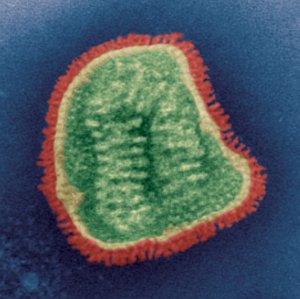International Consortium for future pandemics

The International Severe Acute Respiratory Infection Consortium (ISARIC) will focus on understanding the cause of severe acute respiratory diseases, establish their development in patients, and develop better practices in the treatment and prevention of these infections. Their aim is to change the way research is conducted for future outbreaks of infectious diseases.
Infectious outbreaks are not limited only to influenza outbreaks but are global phenomena that are occurring with increasing frequency and include such diseases as Ebola and other viral hemorrhagic fevers, tuberculosis, artemisinin-resistant malaria and many more.
This consortium will provide training so that researchers have the skills and resources to undertake the challenge of a high-quality clinical research. This will allow researchers to respond more rapidly to diseases that may have the potential to become pandemic or even epidemic, such as the recent H1N1 influenza outbreak. ISARIC will also ensure that open access protocols and data sharing processes are used.
“The Wellcome Trust Sanger Institute will work with ISARIC on host and pathogen genetic factors involved in pathogenesis, building on our current work on influenza virus infection. This global collaborative effort will make it possible to work with and help a wide range of patients from different cultural backgrounds.”
Professor Gordan Dougan Head of Pathogens at the Wellcome Trust Sanger Institute
The standardized and open-access protocols developed during this consortium will allow researchers from all participating countries to work with, adapt and evolve common clinical case ascertainment. This will ensure that high-quality and comparable clinical research is practiced on a global scale.
The consortium will initially focus on respiratory infections. Some of the Consortium-wide projects will potentially include; large-scale randomised control trials of therapeutic interventions in respiratory infections, a randomised control trial of drugs to modulate the immune response to severe influenza, studies of pharmacology and host and pathogen genetic factors involved in pathogenesis, and the ethical considerations of clinical research in the context of rapidly emerging health problems.
“We at the Sanger Institute are very excited to be part of ISARIC. It is clear to us that understanding the fundamental mechanism of host and virus interactions that occur during severe acute respiratory infection and pandemics such as influenza requires both international collaboration of clinical networks and detailed host and pathogen genetic analysis. It is only through such a consortium that sufficient cases, clinical detail and samples can be collected to allow such studies.”
Professor Paul Kellam Senior Investigator at the Wellcome Trust Sanger Institute
The ISARIC is being launched by the Wellcome Trust, and the UK Medical Research Council, the Bill & Melinda Gates Foundation, Inserm, Li Ka Shing Oxford Global Health Programme and the Singapore Ministry of Health.
More information
Selected websites
The French National Health and Medical Research Institute
The French National Health and Medical Research Institute (Inserm) is a public science and technology institute, jointly supervised by the French Ministry of Higher Education and Research and the Ministry of Health. The mission of its scientists is to study all diseases, from the most common to the rarest, through their work in biological, medical and public health research. Inserm is a co-founder of the French National Alliance for Health and Life Sciences (Aviesan), founded in April 2009 with eight other partners including CNRS, Pasteur Institute and IRD. Aviesan alliance strengthens the position of French research in the sector by coordinating research programmes through 10 specialized institutes including the Institute of Microbiology and Infectious Diseases (IMMI)
The Medical Research Council
The Medical Research Council (MRC) is a national organisation funded by the UK taxpayer. Its business is medical research aimed at improving human health; everyone stands to benefit from the outputs. The research it supports and the scientists it trains meet the needs of the health services, the pharmaceutical and other health-related industries, and the academic world. The MRC has funded work that has led to some of the most significant discoveries and achievements in medicine in the UK. About half of the MRC’s expenditure of more than £500 million is invested in its 40 Institutes, Units and Centres. The remaining half goes in the form of grant support and training awards to individuals and teams in universities and medical schools.
The Wellcome Trust Sanger Institute
The Wellcome Trust Sanger Institute is one of the world’s leading genome centres. Through its ability to conduct research at scale, it is able to engage in bold and long-term exploratory projects that are designed to influence and empower medical science globally. Institute research findings, generated through its own research programmes and through its leading role in international consortia, are being used to develop new diagnostics and treatments for human disease.
The Wellcome Trust
The Wellcome Trust is a global charitable foundation dedicated to achieving extraordinary improvements in human and animal health. We support the brightest minds in biomedical research and the medical humanities. Our breadth of support includes public engagement, education and the application of research to improve health. We are independent of both political and commercial interests.


